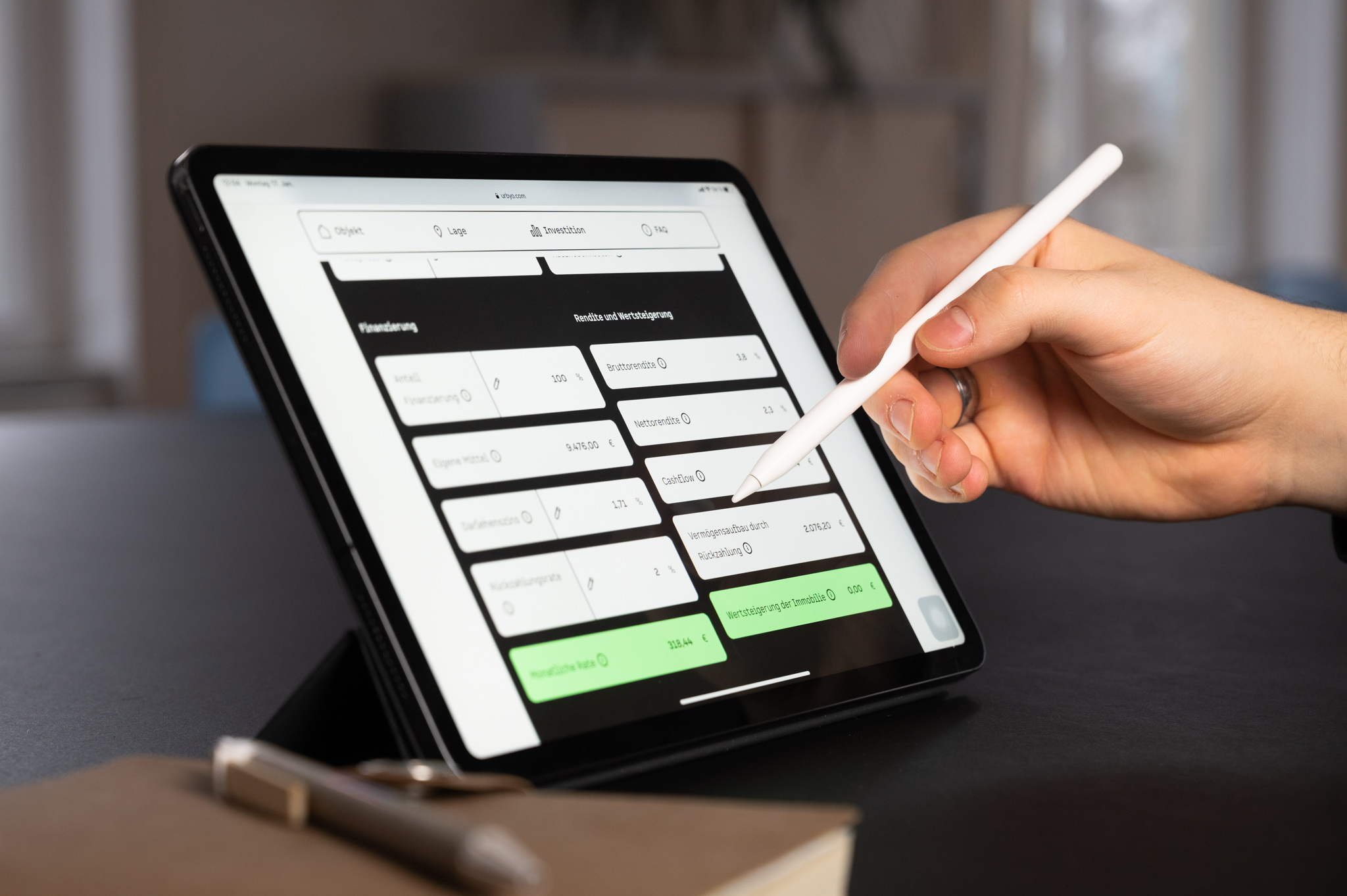The budget calculation: how banks decide what size credit line you qualify for
Will it be enough?

Before the financing comes the paperwork
Before a bank can approve you for a loan to buy real estate, they need to review not only the property you want to purchase but also your financial situation – or rather, how your income compares to your expenses. This entire process – which is known as a "Haushaltsrechnung" (budget calculation) in German – might sound kind of scary at first, but ultimately it helps the bank determine whether or not they can give you the thumbs-up for financing.
Since each real estate property is different, and each loan applicant needs to be considered individually, there isn't one universal way budget calculations are performed. To simplify the process, banks typically make use of budget estimates and premiums. That might prove to be the right fit, but it doesn't necessarily have to be. Also, if you're buying real estate as an investment instead of a home, the bank calculates your budget differently.
Last but not least, we have the paperwork – and there's plenty of it. Apart from the documents and information regarding your personal situation, the bank will also want to see proof of your income and expenses. So, if you aren't a document-filing whiz, this can turn into a time-consuming and annoying process. Sadly, we can't do the collecting for you, but we can give you a list of exactly what the bank needs to get you through it in no time at all – here and in our Podcast (German audio).
The budget calculation:
one-size-fits-all, yet individualized
Whenever you apply for a loan to buy real estate, the bank prepares a budget calculation, which essentially compares your income to your expenses. The point of the budget calculation is to determine whether you will be able to make the payments on your loan.
Since every loan application situation is different, banks will often use lump sum estimates and risk premiums for certain parts of the calculation, particularly your expenses. But each bank will use these differently. For their budget calculation, one bank might estimate a couple's living expenses at €700/month, while another might estimate €1,500/month. How each bank calculates budgets for loans isn't made public since it's considered a commercial secret.
Your Safe Zone
As a rough initial estimate, keep in mind that your monthly payment should not exceed 30-40% of your household income after taxes when you are buying a home.
For an apartment you intend to rent out, the monthly payment should be roughly equal to the net monthly cold rent.
If you have a lot of personal savings or generate regular income on the side, this will look good on the income side of the budget calculation. But if you're paying off expenses that don't generate any income – like a car, television, smartphone, or other consumer goods – then naturally, this will count against you.
The income side of the budget calculation is where the bank will need detailed information from you. Your expenses, on the other hand, will typically be calculated using lump sum estimates. That means that you won't have to provide detailed proof of your living costs, for example. Whether you cook at home or eat out every day, or whether you go on vacation five times a year or only once, is of little relevance to the bank. But keep this in mind: the higher your net household income is, the higher the lump sum estimate will be.
When lump sums do not fit
If the bank sets your living cost estimate too high or too low, let us know. We'll straighten it out with the bank to ensure that your budget calculation is realistic and you get a financing offer that fits your actual financial situation.
Everything that goes into the budget calculation
Lump sum estimates are fine and dandy, but you're probably wondering what other specific information the bank is going to want from you to put your budget calculation together.
As we mentioned above, the budget calculation is essentially a calculation that compares your income to your expenses. As such, it looks at how much money you have coming in every month and how much you spend. Mini spoiler: not everything in the list below will necessarily apply to you.
Monthly income:
Salary / wage (if your employment contract is unlimited)
Retirement / pension
Secure secondary employment (since at least three months)
Income after taxes from freelance work (average from the last two years)
Rental income (normally 75% of the net cold rent)
Parental allowance (if you have confirmation of your return to work)
Allowances for childcare
Child support
Investment income
Commissions and royalties (if paid in the last three years at least)
Monthly expenses:
Cold rent
Utilities (water, electricity, heating, internet, telephone, Rundfunk license fee)
Car
Sports activities
Recreational activities
Vacation
Costs for childcare
Alimony
Insurances (health, life, retirement)
Investment deposits
Payments on existing loans
Other regular expenses
Whew, that's a pretty long list. But like we said, not everything will necessarily apply to you, and the bank will likely use lump sum estimates to calculate your expenses. The lump sum for living expenses for one adult is €750 on average. Other expenses, such as private health insurance, might be added to this. The lump sum estimate per child is about €250.
If you roughly consider your expenses, do these estimates fit your situation? If you have any questions about this, simply send us an email or visit our Community to speak with other homeowners. By the way, if you have a property in mind and want to get a quick overview of all the purchase costs, we have something for you here. 👇
Budget calculations for investment real estate
If, instead of buying a house as a home, you want to purchase an apartment as an investment and rent it out, the bank will consider this in your budget calculation. You will also have to pay additional maintenance costs each month. You can give responsibility for a portion of these costs to your tenant, but you will have to pay the costs for management, repairs, and reserve funds yourself. To calculate these, your bank will use a lump sum estimate of between €2 and €4 per square meter, depending on the age and size of the property.
In contrast to buying a home, when you purchase investment real estate, your mortgage and monthly costs are accompanied by regular income generated by the property itself. You won't have to pay for anything out of pocket in an ideal scenario – if you're optimizing with your cash flow in mind.
But if you haven't considered your cash flow and are counting merely on the property increasing in value, the bank might not approve you for financing, or you might end up not being able to make your monthly payments. Why might that happen? Well, your rental income could fall below the market rate, for example.
Another benefit of optimizing for cash flow is that you will likely be offered a better interest rate if and when you apply for follow-up financing.
A matter of age
Your age plays a role in the budget calculation as well. The bank will look to see whether you will be able to pay off the loan before you go into retirement and/or if you will still be able to make your monthly payment once you've retired. If you're taking out a loan at age 30, you shouldn't have much of a problem. But if you're 40, the bank will start to be a bit stricter, and if you're over 50, some banks will anticipate the need to charge you an interest premium.
All in all, the budget calculation can tip the scale for you in either direction. If the bank thinks you don't have enough cash available, then technically, it's game over. Technically. But every bank does its calculation differently. And if you need our help, just let us know: we can request financing on your behalf from over 1400 partner banks.
